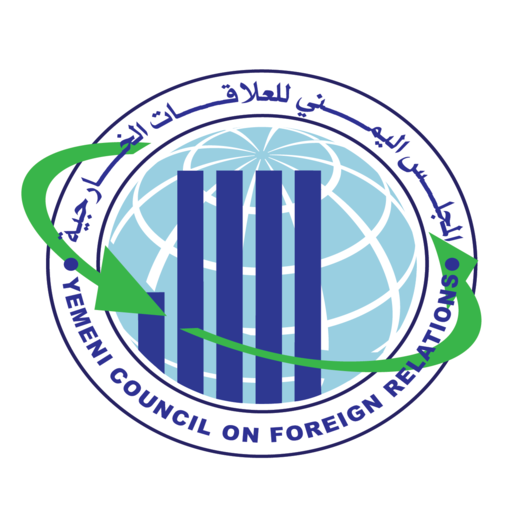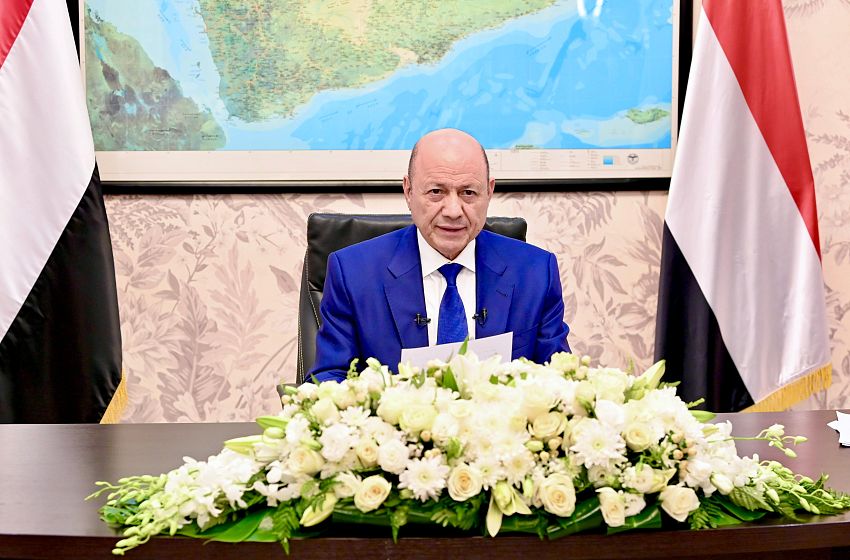His Excellency Dr. Rashad Muhammad Al-Alimi, the President of the Presidential Leadership Council, emphasized that the memory of Yemeni unity on May 22, 1990, will remain a significant occasion surrounded by appreciation. It is a moment worthy of reflection, learning, and conscious initiative to protect national harmony, the will of the Yemeni people, and ensure broad participation in decision-making without exclusion or marginalization.
He renewed the commitment of the Presidential Leadership Council in a speech to the Yemeni people on the occasion of the 34th National Day of the Yemeni Republic, reaffirming their announced commitments. Among these commitments is the consideration of the Southern Issue as fundamental to the comprehensive solution and openness to all options to enable “our people to achieve their aspirations, determine their political position, and promote their economic, social, and cultural development based on national, regional, and international references.”
His Excellency expressed great pride that this occasion comes at a time when “our republican alliance is stronger and more united around its major national goals.” People are succeeding thanks to the sacrifices of our heroes from our armed forces, security forces, all military formations, popular resistance, and our steadfast cities as they engage in another round of the decisive battle against the racist, oppressive, and Iranian-affiliated Imamate project.
He said, “It is enough that we come together today in the temporary capital, Aden, as a unified consensus leadership to face recurring risks, just as our early ancestors did over almost seven decades defending the republican system, which has never faced a more challenging time than it is experiencing now.” The people are being pursued hysterically by a terrorist group, endangering our people everywhere, claiming the lives of hundreds of thousands, and displacing millions in a manner surpassing all the racist wars in its dark history.
His Excellency reiterated that Yemeni unity, from its inception as an idea, a national call, to its tangible realization, “represented, in essence, a comprehensive civilizational project based on a set of noble principles, the most important being: enhancing national unity, broad participation in power and wealth, achieving justice and equality, and upholding the rule of law.” While acknowledging the steadfast commitment of free Yemenis in the north and south of the country to the essence of this developmental project, he firmly stressed the rejection of the free Yemeni people to empty this achievement of its national, political, and ethical content. It must not become a shaded slogan hiding the tendency for domination, power, and wealth, a tendency embodied today by the Houthi militias.
His Excellency praised the achievements of the first generation who contributed to the birth of the Yemeni Republic. He also expressed deep appreciation for those who led the correction of the national project after the summer war of 1994, starting with the peaceful southern movement, passing through the popular demands for change, and reaching the convoys of martyrs and the wounded from the ranks of the armed forces, security forces, and all military formations, as well as the popular resistance against the Houthi Imamate project.
He emphasized that a close examination of the movement of history clearly reveals that Yemeni unity and the specifics of the southern issue are two sides of one idea and one dream; two sides of the pluralistic republican Yemen, and the system based on justice, equality, and the rule of law. He considered this to be the new homeland that he and his brothers on the Presidential Council are striving to embody as much as possible, through diligent work to correct errors, rebuild institutions, uphold sincere values of partnership in power and wealth, national consensus, empowering local authorities, enhancing their independence, supporting mechanisms of good governance, and solidifying the decentralization of power, on the ruins of the idea of sacred centers of governance.
In his speech, His Excellency outlined the efforts made by the Presidential Council and the government to meet the needs of citizens and improve conditions, beginning with ending the chronic energy crisis, confronting current challenges, and moving forward in the battle to restore state institutions and overthrow the coup.
He pointed out that progress in electricity services would soon come from the sustainability of fuel supplies, with the arrival of 120 megawatts for generation next month in Aden governorate, from a renewable energy station, in addition to the entry of 25 megawatts into the grid earlier in Al-Mukha district in Taiz governorate.
He explained that efforts are underway to establish a 56-megawatt renewable energy station in Shabwa governorate as a first phase, and 50 megawatts in Al-Khawkha and Hais. Preparations are being made to build power stations in Hadramout with a capacity of 25 megawatts, another in Taiz with a capacity of 30 megawatts, and a wind station in Ras Al-Ara with a capacity of 100 megawatts. The government is also working on increasing the generation capacity from the Aden Presidential Station to over 200 megawatts after completely renovating the dilapidated distribution network in the past two years, while our Kuwaiti brothers support the maintenance of the Ma’arib gas station and its rehabilitation project with $40 million, in addition to estimated contributions from the local authorities in the governorate.
On the peace front, the President of the Presidential Council reiterated the council’s firm stance on peace efforts, based on the four principles that have been repeatedly emphasized, including adherence to national, regional, and international references, especially Resolution 2216, non-interference with the legal and political status of the UN member state, and the inclusivity of any peace process and its protection through regional and international guarantees, including the representation of the southern issue in any future consultations, as well as continued openness to all mediation efforts linked to alleviating the suffering of citizens and securing their interests and dignified living.

